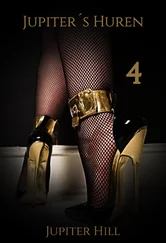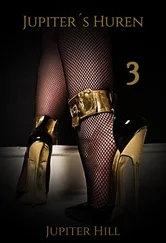Constance Woolson - Jupiter Lights
Здесь есть возможность читать онлайн «Constance Woolson - Jupiter Lights» — ознакомительный отрывок электронной книги совершенно бесплатно, а после прочтения отрывка купить полную версию. В некоторых случаях можно слушать аудио, скачать через торрент в формате fb2 и присутствует краткое содержание. Жанр: foreign_prose, на английском языке. Описание произведения, (предисловие) а так же отзывы посетителей доступны на портале библиотеки ЛибКат.
- Название:Jupiter Lights
- Автор:
- Жанр:
- Год:неизвестен
- ISBN:нет данных
- Рейтинг книги:4 / 5. Голосов: 1
-
Избранное:Добавить в избранное
- Отзывы:
-
Ваша оценка:
- 80
- 1
- 2
- 3
- 4
- 5
Jupiter Lights: краткое содержание, описание и аннотация
Предлагаем к чтению аннотацию, описание, краткое содержание или предисловие (зависит от того, что написал сам автор книги «Jupiter Lights»). Если вы не нашли необходимую информацию о книге — напишите в комментариях, мы постараемся отыскать её.
Jupiter Lights — читать онлайн ознакомительный отрывок
Ниже представлен текст книги, разбитый по страницам. Система сохранения места последней прочитанной страницы, позволяет с удобством читать онлайн бесплатно книгу «Jupiter Lights», без необходимости каждый раз заново искать на чём Вы остановились. Поставьте закладку, и сможете в любой момент перейти на страницу, на которой закончили чтение.
Интервал:
Закладка:
“Central Africa,” Eve suggested.
“Africa? I think I said for gentlemen.”
“You turbulent old despot, curb yourself,” said Cicely, sotto voce .
“In the old days, Miss Bruce,” the judge went on, “we had Arabia, we had Thibet, we had Cham-Tartary; we could arrive on camels at Erzerum. Hey! what are you about there, boy? Turn out!”
“Turn out yourself.”
The track had passed down into a winding hollow between sloping banks about six feet high; on the other side of a curve they had come suddenly upon an empty hay-cart which was approaching from the opposite direction, drawn by two mules; the driver, an athletic young negro with an insolent face, was walking beside his team. His broad cart filled every inch of the track; it was impossible to pass it without climbing the bank. The judge, with his heavy wagon and one horse, could not do this; but it would have been easy for the mules to take their light cart up the slope, and thus leave room for the wagon.
The old planter could not believe that he had heard aright. “Turn out, boy!” he repeated, with the imperious manner which only a lifetime of absolute authority can give.
The negro brought his mules up until their noses touched the nose of the horse; then, putting his hands in his pockets, he planted himself, and called out, “W’at yer gwine ter do ’bout it?”
In an instant the judge was on his feet, whip in hand. But Cicely touched him. “You are not going to fight with him, grandpa?” she said, in a low tone. “For he will fight; he isn’t in the least afraid of you.”
The judge had now reached the ground. In his rage he was white, with his eyes blazing. Eve, greatly alarmed, clasped little Jack closer.
Cicely jumped lightly down. “Grandpa,” she said, under her breath, “he is a great deal stronger than you are, and after he has struck you down we shall be here alone with him – think of that. We will all get out, and then you can lead the horse up the bank, and go by him. Dear grandpa, it is the only way; this isn’t the island, this is South Carolina.”
Eve, seeing the speechless passion of the old man, had not believed that Cicely would prevail; she had closed her eyes with a shuddering, horrible vision of the forward rush, the wrested whip, and the silver-haired head in the dust. But, with a mighty effort, trembling like a leaf with his repressed rage, the judge put up his hand to help her in her descent. She accepted his aid hurriedly, giving Jack to Cicely; Miss Leontine had climbed down alone, the tears dropping on her cheeks behind her veil. The judge then led the horse up the bank and past the wagon, the negro keeping his position beside his mules; the ladies followed the wagon, and mounted to their places again when it had reached the track, Cicely taking the seat by the side of her grandfather. Then they drove off, followed by the negro’s jeering laughter.
The old planter remained perfectly silent. Eve believed that, after he had deposited them safely at home, he would go back in search of that negro without fail. She and Cicely tried to keep up a conversation; Miss Leontine joined them whenever she was able, but the tears constantly succeeded each other on her long face, and she was as constantly putting her handkerchief to her eyes in order to repress them, the gesture much involved with her blue veil. On the borders of the village they passed the little railway station. By the side of the station-house there was a new shop, which had a broad show-window filled with wooden wash-tubs.
“This is the shop of Thomas Scotts, the tar-and-turpentine man who is in love with Matilda Debbs,” said Cicely. “How is that coming on now, Miss Leontine?”
Miss Leontine took down her handkerchief. “The family do not consent.”
“But there’s nothing against the man, is there?”
Miss Leontine took down the handkerchief again – she had already replaced it. “As regards his character, n-nothing. But he is a manufacturer of tubs. It appears that it is the business of the family; his father also manufactures them. In Connecticut.”
“If Thomas Scotts should make a beautiful new tub for each of the Misses Debbs, it wouldn’t be a bad idea; there are twelve or fourteen of them, aren’t there?”
“Ner-nine,” replied the afflicted maiden lady, with almost a convulsion of grief. “But two of them are yer-young yet.”
“And seven are not. Now seven new tubs.”
“Cecilia, let us have no more of this,” said the judge.
It was the first time he had spoken; Cicely put her hand behind her and furtively pinched Eve’s knee in token of triumph.
They came into the main street of Gary Hundred. It was a broad avenue, wandering vaguely onward amid four rows of trees; there was no pavement; the roadway was deeply covered with yellow sand; the spacious sidewalks which bordered it were equally in a state of nature. The houses, at some distance back from the street, were surrounded by large straggling gardens. Farther down were the shops, each with its row of hitching-posts across the front.
They left Miss Leontine at her own door, and went on towards the residence of Cousin Sarah Cray.
“Here comes Miss Polly’s bread-cart, on the way back from Mellons,” said Cicely. “Grandpa, wouldn’t it be a good idea to buy some little cakes?”
The judge stopped the horse; Cicely beckoned to the old negro who was wheeling the covered hand-cart along the sandy road. “Uncle Dan, have you any cakes left?”
Uncle Dan touched his hat, and opened the lid of the cart; there, reposing on snowy napkins, were biscuit and bread, and little cakes of inviting aspect. While Cicely made her selection, Eve bent down and took one of the circulars which were lying, neatly piled, in a corner. It announced, not in print, but in delicate hand-writing, that at the private bakery, number ten Queen Street, Gary Hundred, fresh bread, biscuits, and rolls could be obtained daily; muffins, crumpets, and plum-cake to order. The circular was signed “Mary Clementina Diana Wingfield.”
“They have names enough, those sisters,” Eve commented. “Miss Leontine’s is Clotilda Leontine Elizabeth; I saw it in her prayer-book.”
Cousin Sarah Cray’s residence was a large white house, with verandas encircling it both up stairs and down; the palings of the fence were half gone, the whole place looked pillaged and open. The judge drove up to the door and helped Cicely to descend; and then Eve, who had little Jack, fast asleep, in her arms. Cicely motioned to Eve to go into the house; she herself followed her grandfather as he led the horse round to the stables. Eve went in, carrying Jack and the cakes. Cousin Sarah Cray, hurrying down the stairs to meet her, took the child affectionately. “Dear little fellow, he begins to look right rosy.” She was delighted with the cakes. “They will help out the tea be-u-tifully; we’ve only got waffles.”
Instead of going to her room, Eve took a seat at the window; she was anxious about the judge.
“Miss Polly’s cakes are always so light,” pursued Cousin Sarah Cray, looking at them; “she never makes a mistake, there’s never the tinetiest streak of heaviness in her little pounds! And her breads are elegant, too; when one sees her beautiful hands, one wonders how she can do all the kneading.”
“Does she do it herself?”
“Every single bit; their old Susannah only heats the oven. It was a courageous idea, Miss Bruce, from the beginning; you know they are among our best people, and, after the war, they found themselves left with nothing in the world but their house. They could have kept school in it, of course, for they are accomplished beyond everything; Miss Leontine paints sweetly – she was educated in France. But there was no one to come to the school; the girls, of course, could not afford to go away.”
Читать дальшеИнтервал:
Закладка:
Похожие книги на «Jupiter Lights»
Представляем Вашему вниманию похожие книги на «Jupiter Lights» списком для выбора. Мы отобрали схожую по названию и смыслу литературу в надежде предоставить читателям больше вариантов отыскать новые, интересные, ещё непрочитанные произведения.
Обсуждение, отзывы о книге «Jupiter Lights» и просто собственные мнения читателей. Оставьте ваши комментарии, напишите, что Вы думаете о произведении, его смысле или главных героях. Укажите что конкретно понравилось, а что нет, и почему Вы так считаете.












